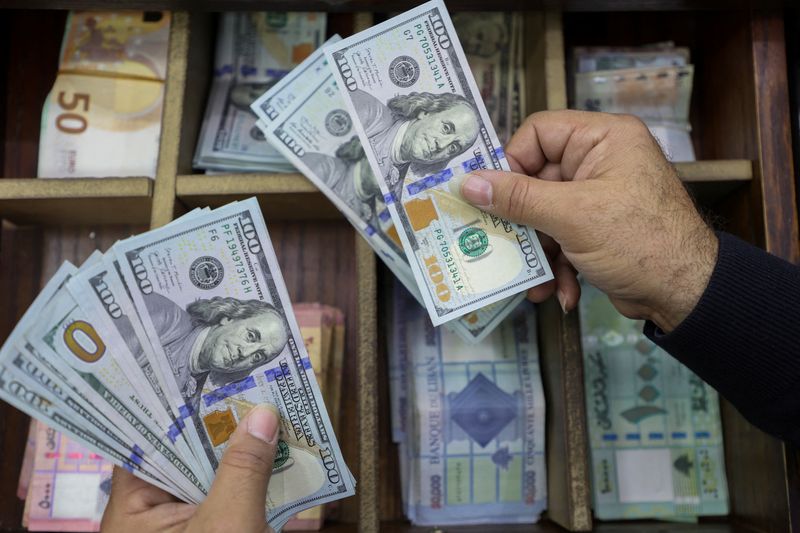
By Stefano Rebaudo
(Reuters) -The U.S. dollar extended its fall after U.S. President-elect Donald Trump was quoted as saying he will not impose U.S. tariffs yet at his inauguration, which is set to take place later in the session.
Trump will issue a broad trade memo on Monday that stops short of imposing new tariffs on his first day in office, the Wall Street Journal reported on Monday. Market participants were expecting Trump to announce trade tariffs under executive order. Such a move would have increased expectations for a large-scale campaign, rising inflation and higher-for-longer Federal Reserve policy rates. Trading volume was thin due to U.S. markets being closed for the Martin Luther King Jr. Day holiday. “Markets were pricing some risk of an executive order on tariffs, which will not take place,” said Francesco Pesole, forex strategist at ING, referring to Trump’s quote on tariffs. The dollar index, which measures the U.S. currency against six peers, was down 1.01% at 108.21. It last week hit a 26-month high of 110.17. Goldman Sachs strategists expect further potential 5% dollar upside in their base-case over the next few months, but cautioned about near-term risks due to the market’s expectations for swift action on tariffs. Since the November presidential election, the greenback has risen 4% as traders anticipate Trump’s policies will boost growth and inflation.
Investors’ attention was firmly fixed on the policies Trump will enact on his first day in office. At a rally on Sunday, Trump said he would impose severe limits on immigration.
Some analysts were expecting Trump to invoke the International Emergency Economic Powers Act (IEEPA).
IEEPA is a federal law in the U.S. that grants the president the authority to regulate economic transactions in response to unusual and extraordinary threats.
Along with tariffs, immigration and tax cuts will be the main issues under market scrutiny.
On the fiscal front, “we will be watching to see if President Trump mentions fiscal stimulus,” said Sjay Rajadhyaksha, research analyst at Barclays.
The euro jumped 1.2% to $1.0398. It last week hit a two-year low at $1.0177 as tariff threats weighed.
Meanwhile softer U.S. inflation data and the prospect of multiple Federal Reserve rate cuts have recently boosted risk assets, including Bitcoin, which hit a record high on Monday at $109,071.86 and was last up 4.2% at $107,120.
Trump has promised to be a “crypto president”, and is expected to issue executive orders aimed at promoting widespread adoption of digital assets.

